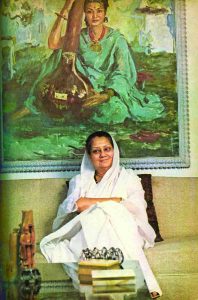The dispute over property worth more than Rs 40,000 crore may well be settled out of court. The next hearing of the case on November 9 will result in the final outcome
~By Rakesh Dixit in Bhopal
Like many royal families, the Scindias too are waging a legal battle over vast properties. The feud, which has been going on for 27 years and involves properties worth over Rs 40,000 crore, is between the scion of the erstwhile Gwalior state, Jyotiraditya Scindia 46, and his three aunts. But, in a new development, the battle could well be settled out of court.

Jyotiraditya, the Congress MP from Guna, had filed a case in a Gwalior court claiming to be the sole heir to the Scindia inheritance in 1990. His aunts—Usha Raje (settled in Nepal), Vasundhara Raje (Rajasthan CM) and Yashodhara Raje (senior cabinet minister in Madhya Pradesh)—had contested the nephew’s claim, citing the will of their late mother, Vijaya Raje Scindia, dated September 20, 1985.
On October 6, 2017, Jyotiraditya filed an application in the Gwalior court of additional sessions judge Sachin Sharma, expressing his desire for an out-of-court settlement. It said: “In view of the seriousness of the case and its far reaching consequences, I am willing for disposal of the case through mutual consent.”

Scindia’s application followed the judge’s suggestion during the last hearing on September 25 when he said that as all those involved in the case were well-educated people’s representatives, they were advised to reach an amicable out-of-court solution. The judge pointed out that under the Madhya Pradesh High Court’s guidelines, all the property disputes in the Scindia family pending in various courts in the country, including Bombay, Delhi, Pune, Jabalpur and Gwalior, are to be disposed of within a certain time-frame. Therefore, “the court expects both the parties to come up with a compromise formula as per the spirit of the Section 89 CPC,” he said. The Section pertains to settlement of disputes with mutual consent.

Scindia’s lawyer submitted before the court that his client had agreed to an out-of-court settlement earlier too and deposited fees for the commissioner appointed by the court for this purpose. However, the commissioner had died during this period. Meanwhile, the lawyers of the aunts have urged the court to consider appointing another commissioner. They also sought a copy of Jyotiraditya’s application. During the next hearing, slated for November 9, the intention of the aunts will be clear regarding ending the battle through mutual consent.
Immense wealth
At the time of Independence, the family owned shares in more than 100 companies, including 49 percent in Bombay Dyeing.
The sprawling Jai Vilas Palace compound and other properties in Gwalior are estimated to be around Rs 10,000 crore. There are also mansions such as Sakhya Vilas, Susera Kothi, Kuleth Kothi, Cottage Hill and Takenpore retreat. Jiwaji Rao Scindia, the ruler of Gwalior, was also bequeathed properties by some sardars, like plots, houses in Danaoli and Pichhadi Deodi and a hill-top retreat. He also had 15 zamindari villages outside Gwalior.
Property elsewhere in the state is valued at Rs 3,000 crore. In Shivpuri, the properties include Madhav Vilas Palace, Happy Vilas and George Castle. There is also Kaliadeh Palace in Ujjain.
In Delhi, the family owned Gwalior House, a plot on Rajpur Road and Scindia Villa, whose value is estimated to be Rs 7,000 crore.
They also own Padma Vilas Palace in Pune, Scindia Ghat in Varanasi and Vithoba Temple, Sanquelim, in Goa.
The family controls four inaam (gifted) villages and lands in 10 other villages in erstwhile Deccan.
They also acquired properties such as the Rs 1,200-crore Vasundhara building on Peddar Road in Mumbai.
The flat in Samudra Mahal in Mumbai where Madhavrao often stayed is valued at Rs 100 crore.
AUNT AND NEPHEW
There are, meanwhile, signs of growing cordiality between Jyotiraditya and Yashodhara Raje, the MP sports minister. During the unveiling of a statue of the late Madhavrao Scindia in Shivpuri, they shared the dais and exchanged greetings.

Yashodhara represents Shivpuri, an assembly segment in Guna parliamentary constituency. She is said to be upset with MP Chief Minister Shivraj Singh Chouhan for his public jibes against the Scindias, stating that in connivance with the British, they had unleashed oppression on the people.
Yashodhara, 63, stands to gain the most if the dispute is settled through mutual agreement. Her eldest sister, Usha Raje, 74, is settled in Nepal and doesn’t take any interest in the case, while the other sister, Vasundhara Raje, 64, has inherited vast properties from the erstwhile Dholpur state that she was married into. She and her son, Dushyant, are reportedly not keen on fighting the case. Yashodhara, who was married to a doctor in England, returned to India after her divorce and has her eyes set on the Scindia properties in Gwalior, particularly the Jai Vilas Palace. Unlike her sisters, Yashodhara got no vast fortune from marriage.
Jyotiraditya is keen on an early settlement of the case because he does not want the BJP to dig up the dispute in the run-up to the assembly elections next year. He is, in all likelihood, to be projected as the Congress’s chief ministerial candidate for this election.
It’s a Royal World…
Other feuding royal families who reached a compromise on inheritance:
SIRMAUR
In January 2011, the Himachal Pradesh High Court amicably settled a 23-year-old property case involving the royal family. The dispute pertained to the estate of Maharaja Amar Prakash who died in 1933. His eldest son, Maharaja Rajendra Prakash, succeeded him by the rule of primogeniture and impartibility of estate.
After Independence, Sirmaur acceded to India. Following this, the properties held by Maharaja Rajendra Prakash were divided into two: state properties and private properties. He became the absolute owner of the private properties vested on him as the ruler of Sirmaur state. He died in 1964, after which his properties devolved upon his heirs, namely, his mother, Rajmata Mandalsa Devi, his wives, Durga Devi and Indira Devi, and his daughters, Raj Kumari Nalini Devi and Padmini Devi of Jaipur.
GAEKWADS
The Gaekwads’ feud was over ancestral property worth Rs 20,000 crore. In October 2013, a Vadodara court accepted a memorandum signed by 23 members of the Gaekwad family to end the 23-year-old fight.
Ranjitsinh Gaekwad’s son, Samarjitsinh, retained the family’s landmark property, Lakshmi Vilas Palace, and 600 acres around it, while his uncle, Sangramsinh, got Indumati Palace, a majority of the family’s residential properties in Mumbai and Vadodara, and real estate owned under Alaukik Trading Company, including bungalows and Nazarbaug Palace.
All members of the family, including Rajmata Shubhangini Raje, her sisters and daughters-in-law were present in the court.
Lakshmi Vilas Palace was built by Maharaja Sayajirao Gaekwad III in 1890. It was then among the few Indian buildings fitted with amenities like elevators. Four times the size of London’s Buckingham Palace, the palace has a golf course and is the largest private property built till date.
Its interiors are like a large European country house. After Independence, Pratapsinh, grandson of Sayajirao Gaekwad III, handed over the reins to his eldest son, Fatehsinhrao Gaekwad.
Since Fatehsinhrao was unmarried, his younger brother, Ranjitsinh Pratapsinh, took over the throne. Years later, Pratapsinh’s youngest son, Sangramsinh, moved court for his right to the royal property.
Samarjitsinh Gaekwad, nephew of Sangramsinh noted: “We took the decision to resolve the dispute for the betterment of our future generation and for peace in our family.”
JAIPUR
The Supreme Court had to intervene in the Jaipur royal family dispute. The Court in September 2015 held the late Gayatri Devi’s grandchildren the heirs to the assets of her son, Jagat Singh, who died in 1997. Gayatri Devi’s stepsons and step-grandchildren had challenged the will that bequeathed shares in her son’s property to Devraj Singh and Lalitya Kumari —children of Jagat Singh and his estranged wife, Princess Priyanandana Rangsit of Thailand. The Supreme Court said Gayatri Devi’s stepsons and step-grandchildren could not claim their right to shares held earlier by the Maharani, the third wife of Sawai Man Singh II, the last ruling king of Jaipur. It directed rectification of company records to show Devraj and Lalitya as holders of stakes that Gayatri Devi held, allowing them the right to their father’s companies—Jai Mahal Hotels, Rambagh Palace Hotels, Sawai Madhopur Lodge and SMS Investment Corporation.
The late queen’s share of property was estimated at around Rs 1,000 crore in 2010. The grandchildren, who had been living in Thailand, hailed the verdict. Jagat Singh had willed his shares to his mother on June 23, 1996, eight months before he died. Later, Gayatri Devi executed a transfer deed and a will in the name of her grandchildren before she died on September 29, 2009.
HUGE ASSETS

The case, which began in 1990 in Gwalior court, had Jyotiraditya claiming sole ownership of his ancestors’ assets which included palaces and real estate in Gwalior, Pune, Mumbai and Delhi. His aunts challenged the nephew’s claim, saying that their mother, Vijaya Raje Scindia, had disinherited her estranged son and former Union minister, Madhavrao Scindia. She instead bequeathed “80 percent of the property to her daughters and 20 percent to a trust”, according to one of the two executioners of the will, noted charted accountant S Gurumurthy. The other executioner was the late Rajmata’s confidant and her son’s bête noire, Sardar Sambhaji Angre.
The will was made public by Angre after Vijaya Raje’s death in January 2001. However, it could not be executed as the mother and son were embroiled in lawsuits in various courts over the division of the royal assets. Madhavrao died in a plane crash in September 2001. With the death, the legal dispute ended. However, the heir to the only surviving Maratha dynasty, Jyotiraditya, is still locked in a legal battle with his aunts.
Jyotiraditya’s contention is that his aunts cannot have any claim over the property of his grandfather, Jiwaji Rao Scindia, as per the rule of primogeniture. According to it, the oldest male child has the right to succeed to the estate of an ancestor to the exclusion of younger siblings and other relatives.

Scindia has claimed that (his father) “late Madhavrao was recognised in terms of Article 366 (22) of the Constitution of India as the ruler of Gwalior in succession of his father late Jiwajirao Scindia with effect from 19 July 1961 as the sole successor of all properties movable or immovable held by the deceased maharaja”.
The same rule applies regarding his claim as the sole heir to the Scindia inheritance as he was the only male child of the ruler of Gwalior.
Even his son, Mahanaryaman, had filed an application on similar grounds to claim inheritance but the court rejected his application.
With so much at stake, it is indeed a battle royale.


